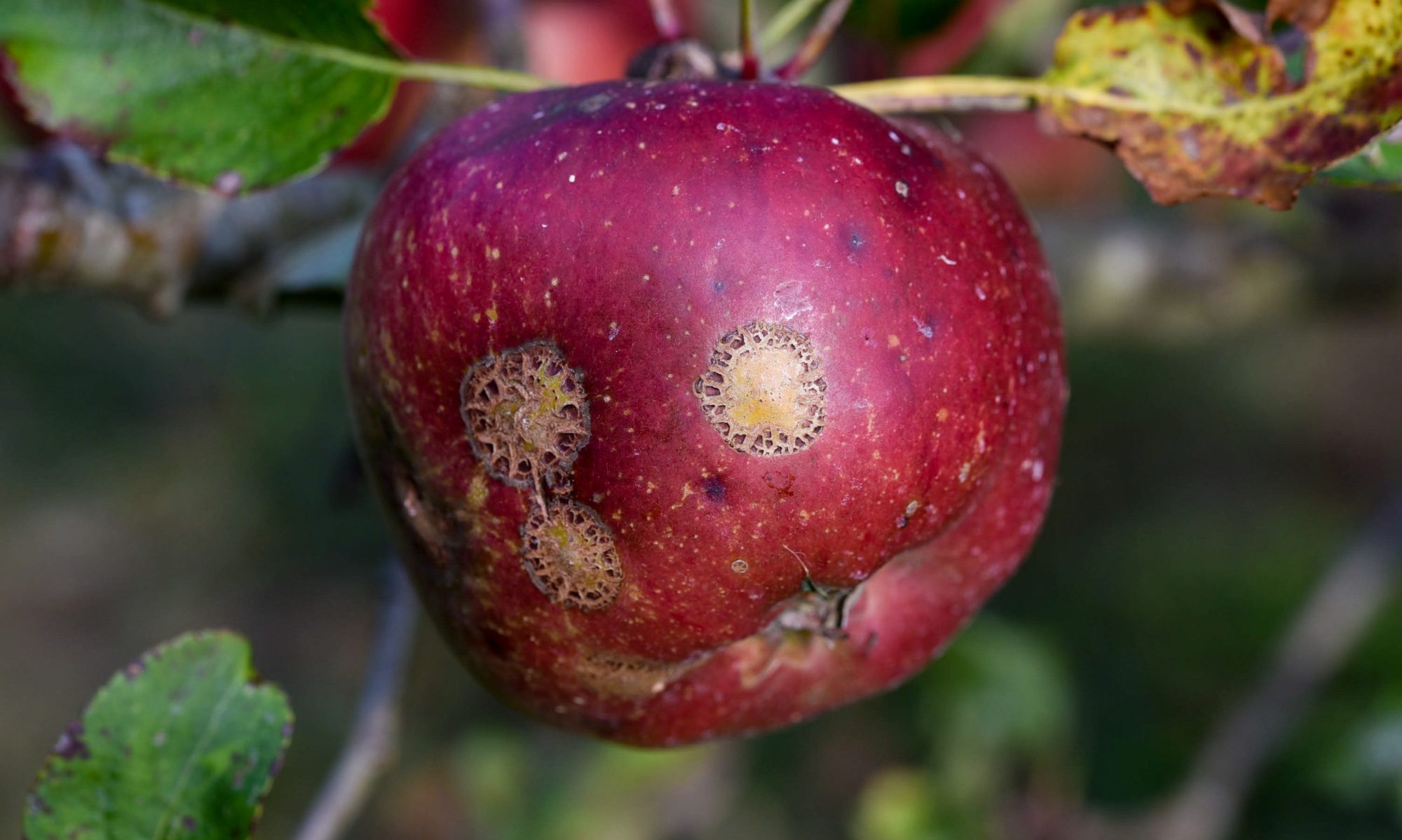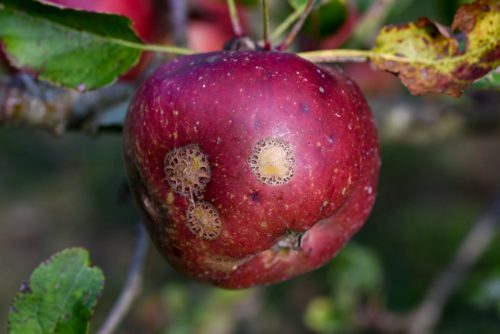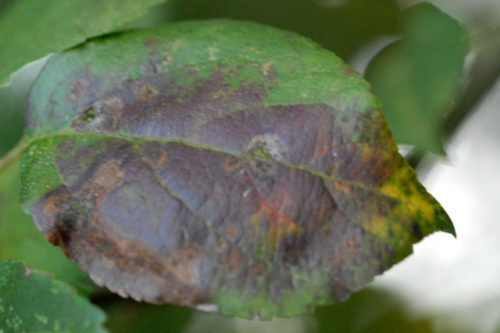Apple scab occurs mainly in moist places and areas with a lot of rain.
The same fungus species causes pear scab (Venturia pirina) .
Apple scab – (Venturia inaequalis) . This fungus mainly occurs in damp places and in areas with a lot of rain, so the leaves stay wet for a long time. The fungal spores then have sufficient moisture to germinate. Light green, matt spots appear on the leaf, discolouring to brown or black, after which the leaf falls off. Scab spots appear on the apples: dark corky spots with cracks. Spots can also appear on young branches. As the young bark of the branches becomes rough, other fungi and germs can get in.
Also fire
Affected plants
- Apple tree
- Hawthorn
- Firethorn
- Rowan
Control
Once the scab spots have appeared, there is little that can be done. The apples (and pears) are not affected, they just don’t look as nice anymore, but are fine to eat.
Remove affected branches.
Prevention
In professional fruit cultivation, exactly how long the leaves remain wet and the temperature are monitored. The combination of both is decisive for the development of scabies.
Cleaning up the fallen leaves in the fall prevents contamination; the fungus overwinters in the leaf. Make sure the wind has free play in the tree.


